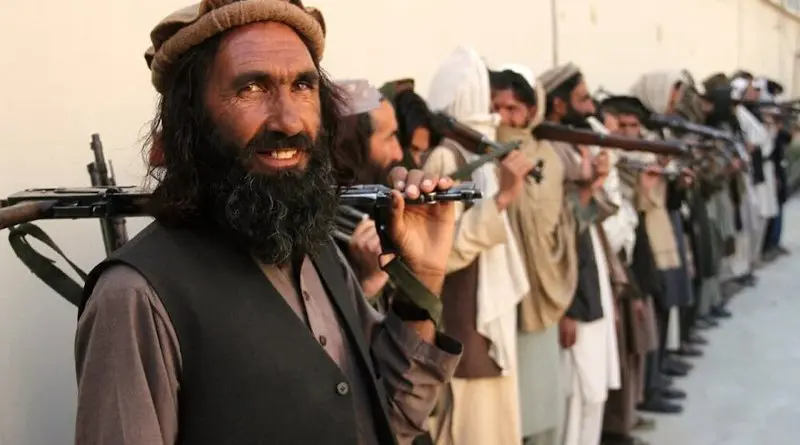Turbulent Times: Two Years Of Taliban Control In Afghanistan – OpEd
Two years have elapsed since the Taliban assumed control of Afghanistan on August 15, 2021, following the tumultuous withdrawal of U.S. and NATO forces after almost two decades of strife. As we commemorate this milestone, the global community contemplates the repercussions of the Taliban’s resurgence to power. Our focus shifts to the concerns over security, human rights violations, economic obstacles, and geopolitical consequences that have unfolded during this biennial period under Taliban governance.
One of the foremost apprehensions since the Taliban’s takeover has been the revival of extremist organizations, particularly al-Qaeda. In spite of the Taliban’s repeated assertions to U.S. negotiators about distancing from al-Qaeda, the U.S. administration located and subsequently eliminated al-Qaeda leader Aimen al-Zawahiri in Kabul. This revelation has triggered queries about the genuine nature of the Taliban’s ties with the militant outfit. Although al-Qaeda’s communication has become more active, U.S. intelligence appraisals suggest that its capacity to directly threaten the United States is constrained.
Further militant groups have exhibited activity within Afghanistan. The Tehreek-e-Taliban Pakistan (TTP) has expanded its operations against Pakistan from sanctuaries in Afghanistan, leading to an upsurge in assaults against Pakistani security forces. Central Asian jihadist factions persist, while the Islamic State Khorasan (ISIS-K) has showcased resilience by executing high-profile attacks despite concerted Taliban efforts to suppress it.
Challenges to Human Rights and Societal Dynamics
The Taliban’s rule has resulted in significant adversities for human rights, particularly women’s rights. Impediments to education, employment, and freedom of movement have become prevalent, adversely affecting Afghan women’s lives. An escalation in media censorship and curtailment of free expression has stifled public discourse and press liberties. Ethnic and religious minorities have encountered bias and persecution, underscoring the Taliban’s disregard for diversity and inclusivity. Meanwhile, the humanitarian predicament has worsened as millions of Afghans grapple with food scarcity and limited access to basic healthcare services.
The Taliban’s administration remains devoid of international recognition, amplifying economic hardships for the nation. Global aid has been restricted, with the international community withholding full normalization of relations until specific conditions are fulfilled. Tribal and regional dynamics persist as influential factors shaping the political landscape, potentially influencing the Taliban’s capacity to forge stable governance. Concerns among neighboring states regarding the spill-over ramifications of instability further contribute to the intricate geopolitical milieu.
The regional response to the Taliban’s rule varies significantly, with neighboring nations harboring reservations about potential repercussions for their own security and stability. Pakistan’s role in shaping Afghanistan’s trajectory is of particular consequence as it manages its relationship with the Taliban, while concurrently managing external pressure to prevent the resurgence of militant groups within its borders. The ascendancy of the Taliban has profound global ramifications for counterterrorism endeavors, raising questions about the potential reestablishment of Afghanistan as a hub for international terrorism.
The Taliban’s governance has shed light on its ideological orientation and strategic modus operandi. While striving to harmonize their jihadist ambitions with geopolitical considerations, the Taliban have endeavored to navigate their interactions with a diverse array of militant groups. Their ideological battles and aspirations for enduring influence resonate beyond national boundaries, influencing broader global jihadist movements. Notably, the Taliban’s foremost leader, Hibatullah Akhundzada, has articulated a protracted ideological struggle and expressed skepticism toward Pakistan’s political system.
Future Possibilities and Inherent Uncertainties
The sustainability of the Taliban’s reign remains enigmatic, compounded by the persistence of internal schisms within the group. Economic and humanitarian predicaments could potentially exacerbate existing challenges, leading to further instability. For Afghan refugees and displaced communities, the implications are profound as international endeavors seek to provide assistance while simultaneously shaping the nation’s trajectory. Diplomatic negotiations and worldwide engagement persist as pivotal factors that will ultimately determine Afghanistan’s course.
Governments worldwide are navigating their approach to dealing with the Taliban regime. Diplomatic interactions, counterterrorism collaboration, and intelligence sharing serve as cornerstone elements of global initiatives aimed at addressing security apprehensions. The intricate task of reconciling humanitarian aid with political objectives persists as a challenge, as international entities strive to safeguard human rights and support vulnerable segments of society. The coordinated international response endeavors to underpin stability, security, and forward progress for Afghanistan.
Conclusion
As we mark the second anniversary of the Taliban’s assumption of power in Afghanistan, we contemplate the developments, challenges, and implications that have transpired over this interval. Security concerns tied to extremist groups, human rights violations, economic trials, and geopolitical intricacies dominate the discourse. While Afghanistan’s course remains uncertain, the resolute commitment of the global community to tackling multifaceted challenges will inevitably shape the nation’s destiny. The forthcoming years will ascertain whether Afghanistan can transition from its tumultuous past into a more secure, prosperous, and all-encompassing society.

